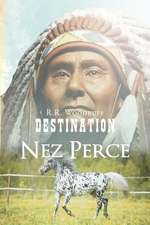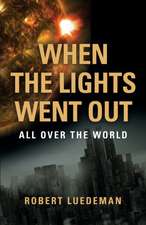The Further Adventures of Robinson Crusoe
Autor Daniel Defoe Editat de Edibooksen Limba Engleză Paperback
| Toate formatele și edițiile | Preț | Express |
|---|---|---|
| Paperback (21) | 52.64 lei 3-5 săpt. | |
| CreateSpace Independent Publishing Platform – | 52.64 lei 3-5 săpt. | |
| CreateSpace Independent Publishing Platform – | 54.78 lei 3-5 săpt. | |
| CREATESPACE – | 81.73 lei 3-5 săpt. | |
| CREATESPACE – | 102.45 lei 3-5 săpt. | |
| – | 107.21 lei 3-5 săpt. | |
| – | 107.51 lei 3-5 săpt. | |
| – | 112.41 lei 3-5 săpt. | |
| – | 112.60 lei 3-5 săpt. | |
| CREATESPACE – | 114.77 lei 3-5 săpt. | |
| CREATESPACE – | 118.91 lei 3-5 săpt. | |
| Outlook Verlag – 24 sep 2019 | 247.00 lei 3-5 săpt. | |
| – | 58.54 lei 6-8 săpt. | |
| – | 78.37 lei 6-8 săpt. | |
| – | 82.82 lei 6-8 săpt. | |
| Serenity Publishers, LLC – 31 dec 2008 | 89.18 lei 6-8 săpt. | |
| Blurb – 6 feb 2019 | 95.72 lei 38-44 zile | |
| Echo Library – 28 aug 2019 | 106.82 lei 38-44 zile | |
| CreateSpace Independent Publishing Platform – 30 noi 2015 | 129.44 lei 6-8 săpt. | |
| Sovereign – 2 aug 2018 | 131.31 lei 6-8 săpt. | |
| Book Jungle – 3 feb 2010 | 158.14 lei 6-8 săpt. | |
| TREDITION CLASSICS – 31 oct 2011 | 185.37 lei 6-8 săpt. | |
| Hardback (1) | 364.52 lei 3-5 săpt. | +26.38 lei 7-13 zile |
| Outlook Verlag – 24 sep 2019 | 364.52 lei 3-5 săpt. | +26.38 lei 7-13 zile |
Preț: 78.37 lei
Nou
Puncte Express: 118
Preț estimativ în valută:
14.100€ • 15.70$ • 12.41£
14.100€ • 15.70$ • 12.41£
Carte tipărită la comandă
Livrare economică 05-19 aprilie
Preluare comenzi: 021 569.72.76
Specificații
ISBN-13: 9781533160201
ISBN-10: 1533160201
Pagini: 236
Dimensiuni: 152 x 229 x 13 mm
Greutate: 0.32 kg
ISBN-10: 1533160201
Pagini: 236
Dimensiuni: 152 x 229 x 13 mm
Greutate: 0.32 kg
Notă biografică
Daniel Defoe (1660 - 1731), born Daniel Foe, was an English trader, writer, journalist, pamphleteer and spy, most famous for his novel Robinson Crusoe. Defoe is noted for being one of the earliest proponents of the novel, as he helped to popularize the form in Britain with others such as Samuel Richardson and is among the founders of the English novel. He was a prolific and versatile writer, producing more than five hundred books, pamphlets, and journals on various topics, including politics, crime, religion, marriage, psychology and the supernatural. He was also a pioneer of economic journalism.



